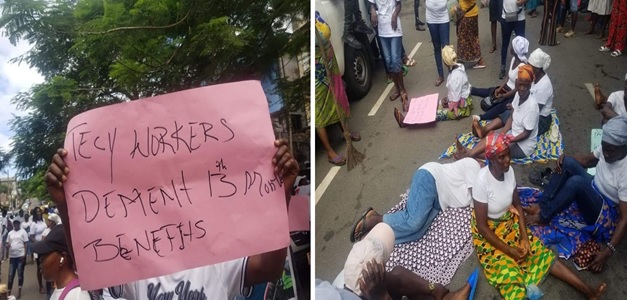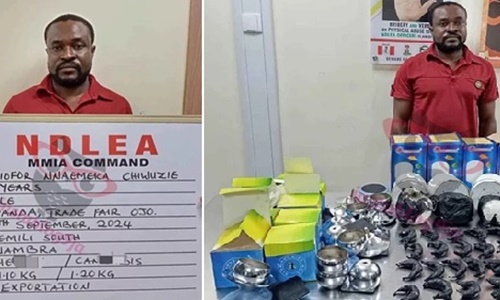MONROVIA – The Liberia National Police, equipped with protective gear and batons, stood in front of the Ministry of Finance and Development Planning on Broad Street early Monday morning, September 30, 2024, to prevent a growing protest by the Temporary Employment for Community Youth (TECY). The protesters, frustrated after 13 months without pay, were demanding action from President Joseph Boakai’s administration, also referred to as the ‘Rescue Mission.
Carrying placards and filled with visible anger, the TECY workers had one clear demand: their overdue salaries. According to the protesters, the government has made repeated promises but failed to deliver on them. One frustrated protester voiced the collective anger: “They continue to tell us we must do it for Mama Liberia and that we would get paid soon, but it’s long overdue now. Schools are open, and our kids can’t be out of school because we don’t have the money while the government owes us 13 months’ salary.”
Another protester added, “We removed CDC because they refused to pay us on time. Interestingly, our own people are doing worse. We need our pay, or no one will work in peace at the Ministry of Finance.”
The TECY workers play a critical role in keeping Monrovia clean, managing tasks such as clearing streets, cleaning beaches, and maintaining waterways. However, their essential contributions have been met with continued neglect, leaving many in dire financial straits.
As tensions escalated, many onlookers expressed sympathy for the TECY workers, condemning the government’s lack of action. “This Rescue Mission is far from reality,” said one observer. “Since the Unity Party took office on January 22, 2024, the poor have suffered more than ever.”
The protest highlights growing dissatisfaction with the Boakai administration’s handling of economic issues, with some citizens questioning whether the government’s promises to alleviate hardship are genuine. As TECY workers vow to continue their demonstrations until their demands are met, pressure is mounting on the government to address the grievances of its most vulnerable citizens.







